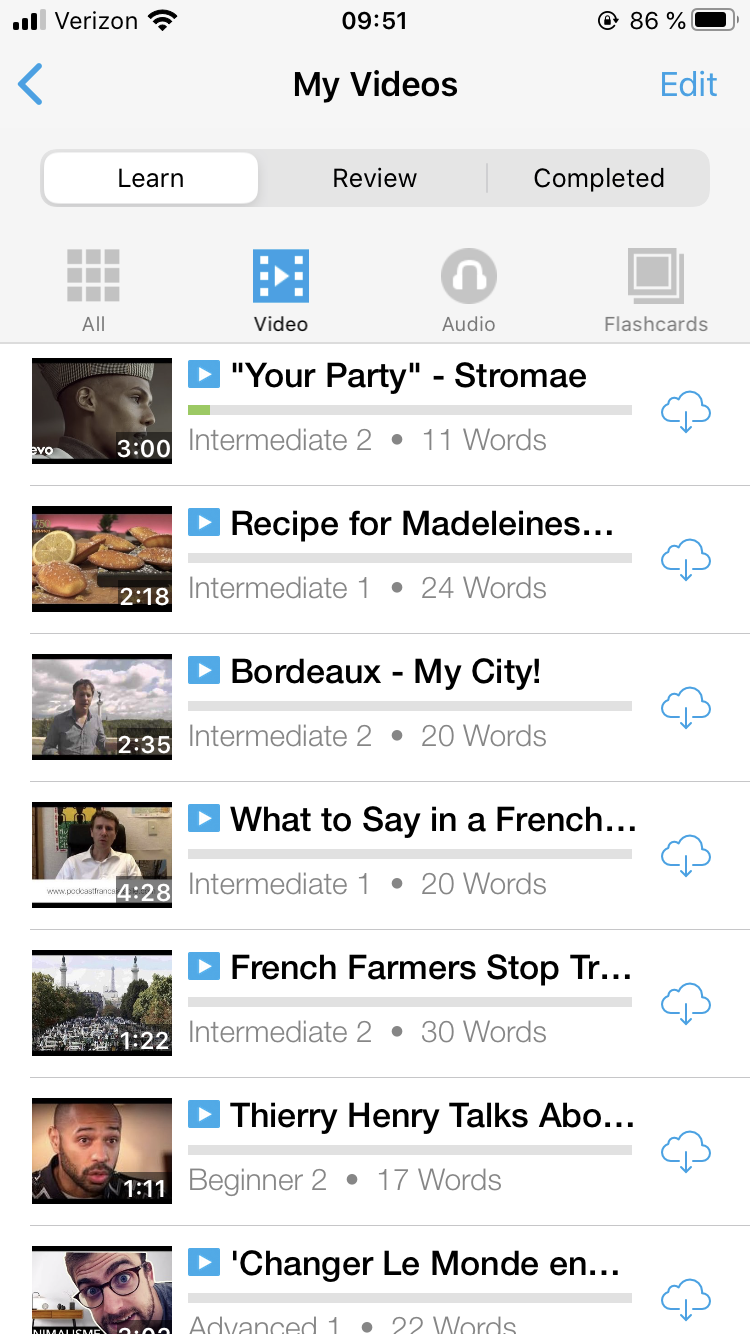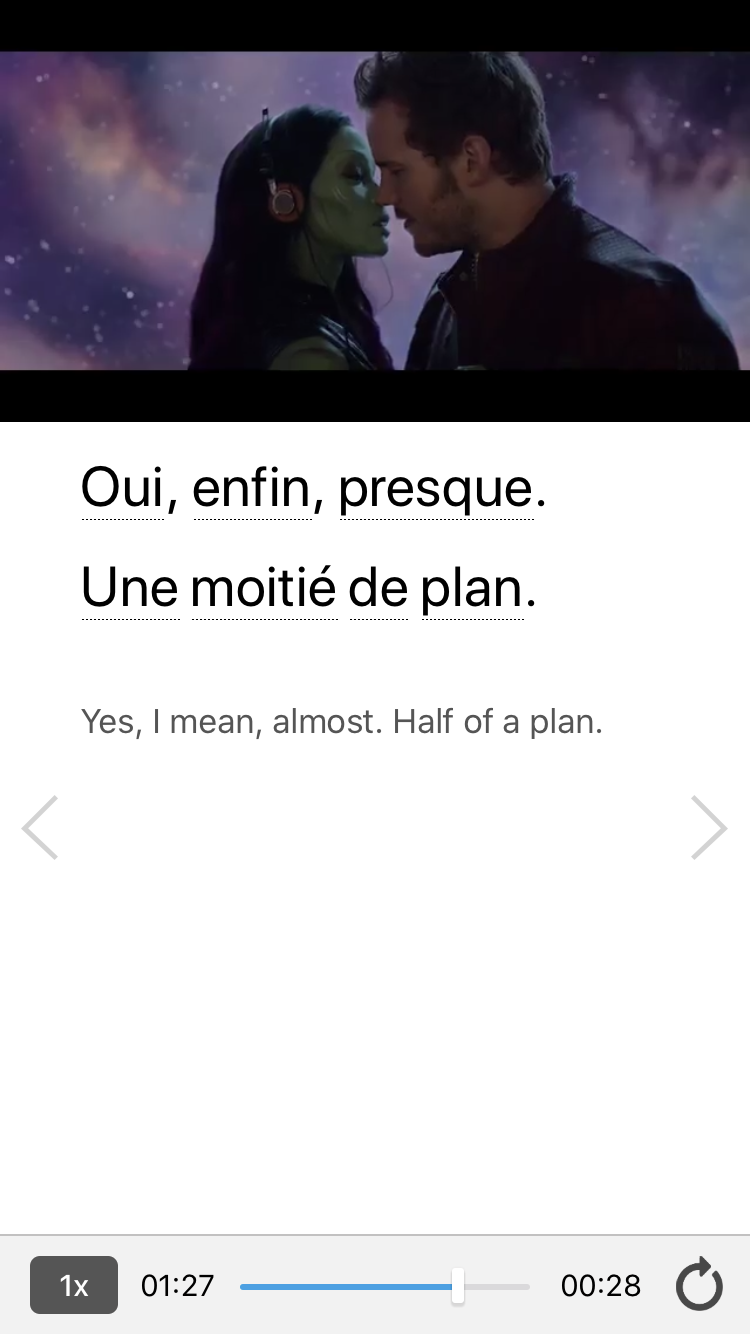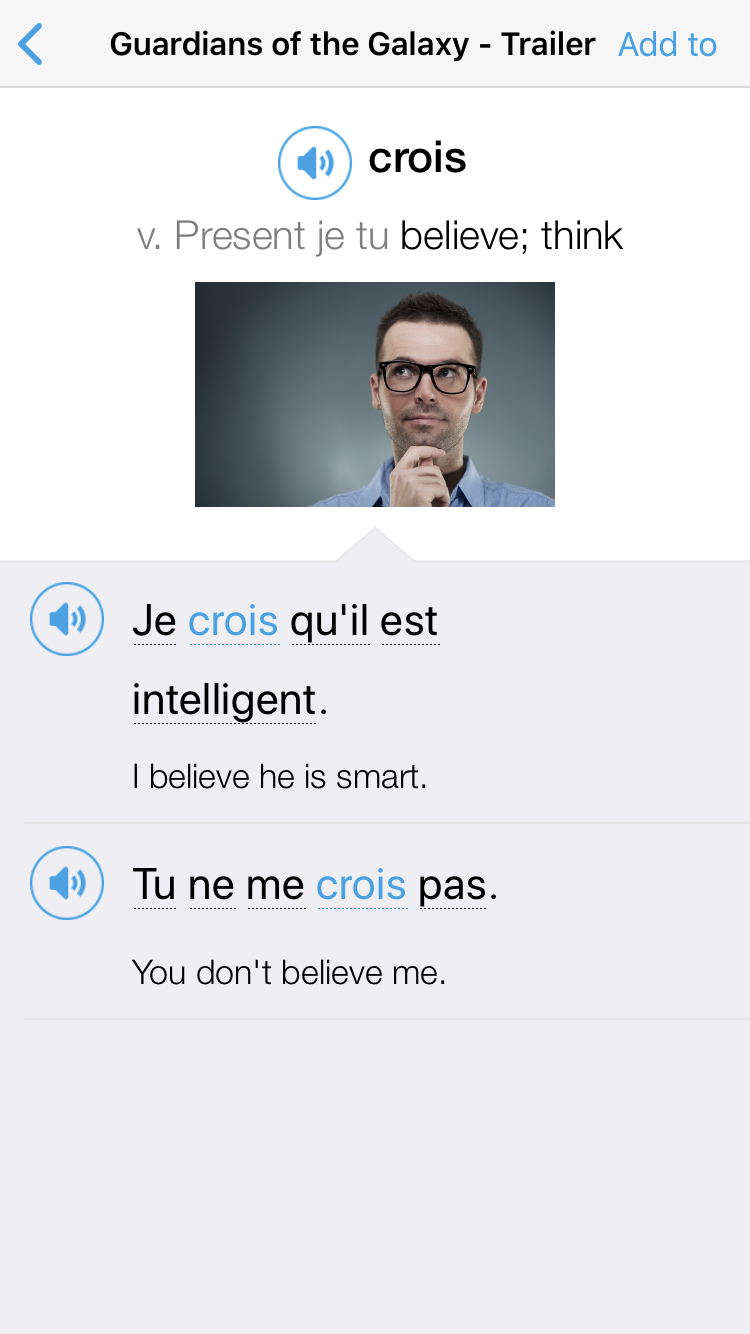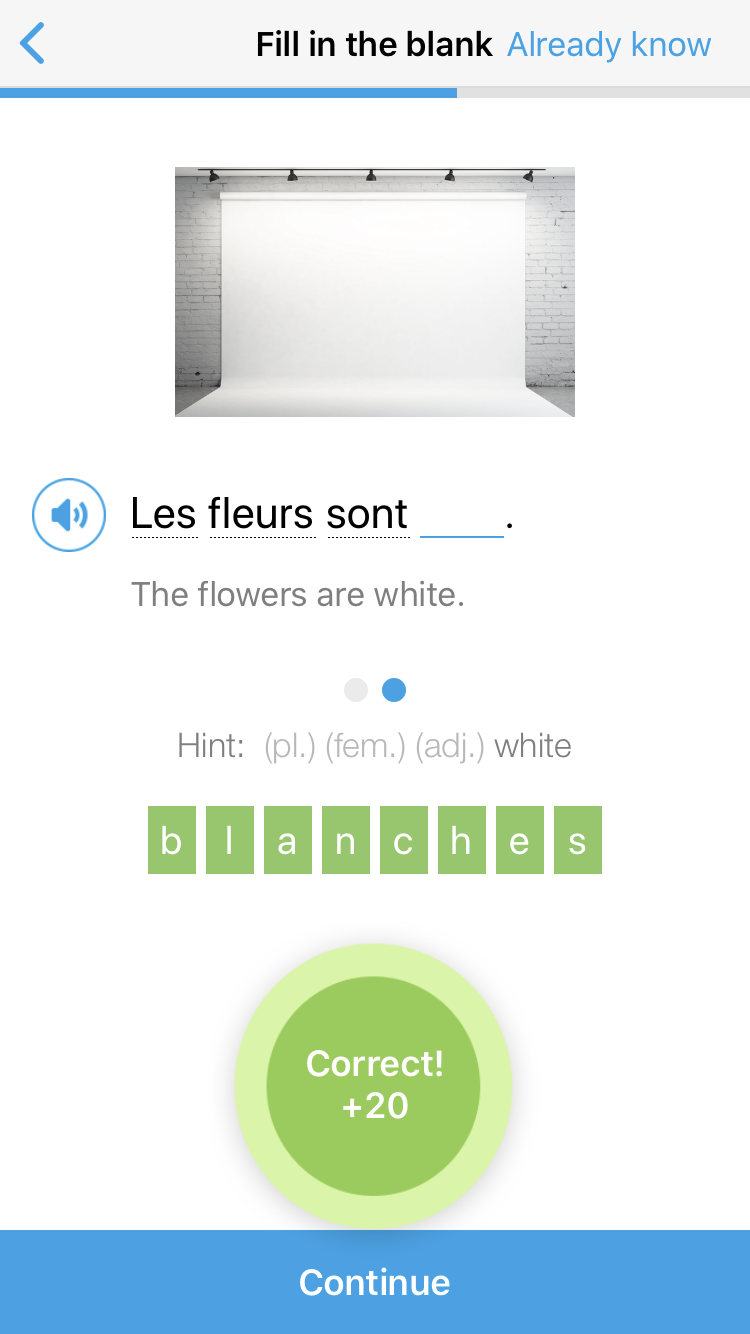How To Live Like A French Woman Blog
So, you've learned the basics of French and you're ready to practice.
You're going to have a real conversation by linking up with a language partner.
Congratulations! Give yourself a well-deserved pat on the back.
Having a conversation in French is much like having one in English, asparler de tout et de rien (small talk) is essentially the same all around the world.
But there are some basic words and phrases you should know before you say "b onjour" to your new acquaintance and get into the thick of conversation.
Here are 10 great, basic sentences to use during French conversation.
Download: This blog post is available as a convenient and portable PDF that you can take anywhere. Click here to get a copy. (Download)

10 Must-know French Sentences for Basic Conversation
1.Comment vous appelez-vous? (What's your name?)
The most common conversation starter: What's your name? There's a more informal way to say this (Comment t'appelles-tu?),but typically when you ask this question, it's best to use the formal version of the phrase to show respect.
How can I continue the conversation?
Je m'appelle…(My name is…)
The best way to keep this conversation going? Introduce yourself, too. "Appeler"is actually the French verb meaning "to call," so "Je m'appelle" literally translates to "I call myself."
This adorable video on FluentU will show you how native French speakers use the informalComment t'appelles-tu? in real life. To get the most out of this video (and tons of other real French videos, from movie clips to inspiring speeches), check out the FluentU free trial.
With a FluentU account, you'll get interactive subtitles, flashcards, exercises and more with every video so you naturally learn new words and phrases while you watch.
2. Enchanté(e)! (Pleased to meet you!)
This is the simplest and most common way to tell the person you just met, "I'm pleased to meet you." Other options include, "Enchanté(e) de faire votre connaissance," (Pleased to make your acquaintance), which is just as formal in French as it is in English, and "C'est un plaisir de vous rencontrer" (It's a pleasure to meet you), which is formal, but not quite as formal as the former.
Note: The (e) that you see at the end ofenchanté(e)is added when a woman is speaking. This of course only matters if you are corresponding through writing, since this extraedoes not affect pronunciation at all.
How do I continue the conversation?
There are a lot of ways to continue the initial introduction; you could choose to ask one of the other questions in this list, or say something kind about what they're wearing, such as, "J'aime bien votre t-shirt"(I like your t-shirt).
3. Je viens de… (I'm from…)
This phrase, meaning "I'm from…" will come in handy after you've introduced yourself. You can use this to refer to both your country and your city. For example, I'm from Atlanta, Georgia in the United States, so I could say either "Je viens des Etats-Unis"or "Je viens d'Atlanta."
Notice how the "de" changes depending on the noun used. Since the word for "United States" in French is plural, it uses "des" rather than "de."Since "Atlanta" begins with a vowel, and "de" ends with an "e," you drop the "e" in"de."This rule applies only for words that end in "e" that are directly next to words beginning in a vowel; words ending in a, o, u and y are never connected in that fashion.
How can I continue the conversation?
D'où viens-tu/D'où venez-vous?(Where are you from?)
It's possible your conversation partner will ask you this question first, but if they don't, you can follow up your discussion about your home country or city by asking them where they are from.
There are two different phrases here; the first one that includes "tu" is the informal version of the phrase that should only be used with friends, family or peers. The second version, with the formal "vous," is most appropriate with people that you have just met, and will probably be the best choice here.
4.J'habite à… (I live in…)
This sentence, meaning "I live in," will likely follow the question "Where are you from?" For me, that answer is New York City, so I would say, "J'habiteà New York." Be careful, though, because the " à" is only used when you are talking about a city. When you want to refer to the country in which you live, things get a bit more complex.
As a general rule, if the country you live in ends with an "e" in French, it's a feminine country and you'll useen.If the country you live in ends with anything but "e" it's most likely a masculine country and you'll useau, unless of course the country is plural (like les États-Unis –the United States), in which case you'll useaux.
For example:
J'habite à Paris. (I live in Paris).
But…
J'habite en France. (I live in France).
J'habite au Canada. (I live in Canada).
J'habite aux États-Unis. (I live in the United States).
Note: Remember how we dropped the "e" in "de"for the phrase "Je viens de…"? Here, we are doing the same with "Je"and "habite." The "h" in"habite"is treated like a vowel because the pronunciation of the word actually drops the "h." For this reason, many words beginning with "h" in French are treated like vowels.
How can I continue the conversation?
Où est-ce que tu habites?/Où est-ce que vous habitez?
This directs the same question back to the other person: "Where do you live?" This will give them a chance to share a little bit about themselves, and will surely bring up some great conversation points, like traveling (if you have visited their home country/city) and culture.
5. Qu'est-ce que vous faites?(What is your profession?)
The literal translation of this phrase is "what do you do," but in conversation it means "What is your profession?" The informal version of the question is:Qu'est-ce que tu fais?
Asking this question will give you a chance to hear and use words likeun professeur(a teacher),un homme d'affaires(a businessman),un écrivain (a writer) and other job words.
How can I continue the conversation?
Est-ce que ça te plaît?/Est-ce que ça vous plaît?
This phrase translates to "Do you enjoy it?," and gives the speaker a chance to go into more depth about his/her job. This can be said even more informally with"Ça te plaît?"
6. Qu'est-ce que vous aimez faire pendant votre temps libre? (What do you do in your free time?)
This phrase extends the small talk to what the person likes to do in their temps libre(free time), and it asks just that: "What do you like to do in your free time?" The informal question is: Qu'est-ce que tu aimes faire pendant ton temps libre?This opens up a world of potential conversation and will help you practice vocabulary likeregarder les films(watch movies), écouter la radio(listen to the radio),faire du sport(play sports) and much, much more.
How can I continue the conversation?
J'aime faire…
This starts a sentence that will follow up your partner's discussion with what you like to do. It means "I like to do…" but the word"faire,"which means "to make, do" can be replaced with any verb that describes what you enjoy doing. For example, I like to write, so I would say, "J'aime écrire."(I like to write). Do some research beforehand to find out what vocabulary you can use to describe what you like to do for fun.
7. Quel temps fait-il? (How's the weather?)
Ah, the weather. It is always a central part of conversation, even in French. This phrase means "What's the weather like?," and will give you a chance to put those weather words likele soleil(the sun),les nuages(the clouds),la pluie(the rain) andla neige (the snow) to good use – depending on the season, of course.
How can I continue the conversation?
Demain, il fait…
If you'd looked at tomorrow's weather beforehand, you can talk about the expected weather for the next day using this sentence that means "Tomorrow, it will be…" Insert the word that best describes tomorrow's weather. Looks like sun? Demain, i l fait du soleil(It'll be sunny tomorrow). Stormy?Demain, il fait du vent(It'll be windy tomorrow).
8.Est-ce que vous avez des frères et s œ urs? (Do you have siblings?)
This sentence, meaning "Do you have brothers and sisters?" will launch the conversation about family. In French, it's more common to ask if you have any brothers and sisters rather than ask if you have siblings. Here's the same question in the informal version:Est-ce que tu as des frères et sœurs?
How can I continue the conversation?
Et tes/vos parents? Qu'est-ce qu'ils font?
After asking about the siblings, the logical next question will be about the parents. This question asks, "And your parents? What do they do for a living?" You could also talk about your own family:J'ai deux sœurs(I have two sisters) orMes parents sont des professeurs(My parents are teachers). Notice that you'll use the possessive adjective tes(your) if you are speaking informally andvos(your) if you are speaking formally.
9. Quel est ton/votre film préféré? (What's your favorite movie?)
This question, meaning "What's your favorite film?," will give you a chance to talk about that movie you saw with your best friend last weekend while practicing using adjectives to describe eitherun mauvais film(a bad film) orun bon film(a good film). You can also substitute "movie" for any other topic you'd like to discuss:un livre(a book), un chanteur (a singer),un groupe de musique(a band), or even back to the weather,une saison(a season).
How can I continue the conversation?
Mon film préféré est…
Here's where you can talk about what film you really enjoyed recently with the response of "My favorite film is…" Use the French title so you can practice your pronunciation!
10. Est-ce que vous avez visité…? (Have you visited… ?)
This sentence is great for discussing the interestingmusées (museums),parcs(parks) and other locations around your city that you find interesting. Simply insert the noun at the end of the sentence to ask, "Have you visited…?" With good friends and family, be sure to use the informal question: Est-ce que tu as visité…?
For example, to ask if your boss has visited Paris, you would say,Est-ce que vous avez visité Paris?(Have you visited Paris?). Make sure to restrict this to talking about places you've visited. When visiting people, you'll use the verbrendre visite à: Je rends visite à mes parents ce week-end(I'm visiting my parents this weekend).
How can I continue this conversation?
Récemment, j'ai visité le mus ée du Louvre.
This sentence, meaning "Recently, I went to the Louvre," introduces an entire conversation about the wonderful paintings you saw at your visit to Paris's Louvre.
Helpful French Phrases to Keep the Conversation Flowing
There will definitely be times when either you don't understand what was said, or you can't remember how to say something in French.
When this happens, use one of these phrases to keep the conversation rolling:
- Pourriez-vous répéter?(Can you please repeat that?)
- Je ne comprends pas.(I don't understand.)
- Comment dit-on ~ en français?(How do you say ~ in French?)
Whether you are just beginning to learn French or perhaps you simply needed a refresher, these sentences will set you up for successful conversations with French speaking partners.
From a coffee shop chat to a quick catch-up on the subway, these quick conversations can happen anytime – and these phrases will help you succeed whenever they occur!
Download: This blog post is available as a convenient and portable PDF that you can take anywhere. Click here to get a copy. (Download)
And one more thing...
If you like learning French on your own time and from the comfort of your smart device, then I'd be remiss to not tell you about FluentU.
FluentU has a wide variety of great content, like interviews, documentary excerpts and web series, as you can see here:

FluentU brings native French videos with reach. With interactive captions, you can tap on any word to see an image, definition and useful examples.

For example, if you tap on the word "crois," you'll see this:

Practice and reinforce all the vocabulary you've learned in a given video with learn mode. Swipe left or right to see more examples for the word you're learning, and play the mini-games found in our dynamic flashcards, like "fill in the blank."

All throughout, FluentU tracks the vocabulary that you're learning and uses this information to give you a totally personalized experience. It gives you extra practice with difficult words—and reminds you when it's time to review what you've learned.
Start using FluentU on the website with your computer or tablet or, better yet, download the FluentU app from the iTunes or Google Play stores.
If you liked this post, something tells me that you'll love FluentU, the best way to learn French with real-world videos.
Experience French immersion online!
How To Live Like A French Woman Blog
Source: https://www.fluentu.com/blog/french/simple-french-sentences/
Posted by: weissworge1972.blogspot.com

0 Response to "How To Live Like A French Woman Blog"
Post a Comment